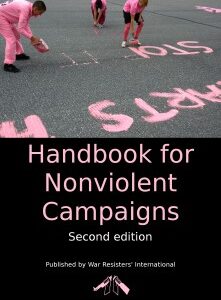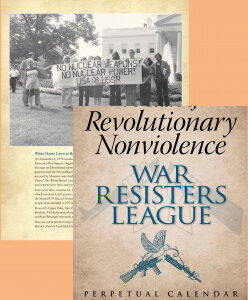Radical Thoughts for the Time Between

Uses of a Whirlwind:
Movement, Movements, and Contemporary
Radical Currents in the United States
Edited by Team Colors Collective
AK Press, 2010, 420 pages, $19.95
You can call the Team Colors Collective’s new book Uses of a Whirlwind a compendium of the interregnum, the time between large movements where activists and intellectuals search for a new path. The whirlwind metaphor fits well, since the book sweeps away the notion that 1960s-style radicalism can be re-born, while arguing that the anti-globalization movement of the turn of the century has also been transcended. What’s left are questions—interesting ones—that speak with hope about creating new outlets for transformative politics. One critical question is whether old ideas retain their utility in addressing current realities.
One chapter that seems to argue for continuity examines the Starbucks Workers Union (SWU) being organized by the Industrial Workers of the World (IWW). While the IWW continues to ground itself in the values of labor solidarity articulated in the early 20th century, they are attempting to adapt these understandings to this rise of multinational corporations—categories such as the “precariat”—used to describe the precarious state of at-will employment—and sharp critiques of Starbucks’ and other companies’ attempts to redefine workers as “partners,” “associates,” or “coworkers” mark the regenerative qualities of the SWU.
The process initiated by the IWW works well with a smart introductory essay by Roxanne Dunbar-Ortiz and Andrej Grubacic. The pair argues that historical events such as the little-considered Oklahoma Green Corn Rebellion of 1917 offer lessons about “organic interracial movements” in America that can inform present struggles. Here, readers are introduced to the crux of the dilemma facing any radical resurgence: Even movements that seek to offer radically new and organic critiques need to lay claim to some parts of emancipatory history.
Movements also need intellectuals willing to interact with grassroots activists. The book hits some high points during a dialogue between Michael Hardt, co-author of the influential book Empire, and the Durham, N.C., activist group El Kilombo Intergalactico (EKI). Through the discussion, Hardt is able to recognize that “we can’t just reject capital as such at an abstract level, that we need to recognize or invent concrete instances for resistance and struggle.” EKI pushes this notion further by calling for a movement to “directly challenge the State’s monopoly on the provision of services.” This is complemented by “the constitution of a new social fabric where new relations both to the earth and to each other are made possible.”
Indeed, the question of the relation between the environment and humanity takes up large segments of the book. Brian Tokar’s excellent summary of environmental struggles over the past 40 years argues that scientific questions about environmental degradation have been settled and the problem is now “entirely social and political.” Roadblock Earth First! offers some ideas on how a political movement to confront overdevelopment can be built on the “anarchist infrastructure” that exists in many cities.
Despite the book’s vibrancy, one weakness is its basic failure to engage with some of the more mainstream manifestations of mass politics. For example, some accounting needs to be made in the ranks of radicals for the rise and demise of the Association of Community Organizations for Reform Now (ACORN). While groups on the left struggled to survive or arrived and declined in spectacular fashion, ACORN ground its way through poor communities of color, amassing, at its height, an impressive 250,000 members. How can radical projects of the poor transcend the thoroughly reformist politics of ACORN? Does the decline of ACORN signal the end of attempts to create “gentrification with a human face”? How can the left fill this void?
One idea that may link the disparate movements featured in Uses of a Whirlwind is the notion of “the commons.” Silvia Federici and Peter Linebaugh outline the historical and theoretical foundations supporting this notion as a counterhegemonic tool for action. Perhaps the struggle to build and claim a “people’s commons” is a way out of the current economic and cultural impasse that capitalism has created. If so, Uses of a Whirlwind will be valuable in mapping a path during the time between movements.

 Handbook for Nonviolent Campaigns, 2nd Edition
Handbook for Nonviolent Campaigns, 2nd Edition  WRL Perpetual Calendar
WRL Perpetual Calendar